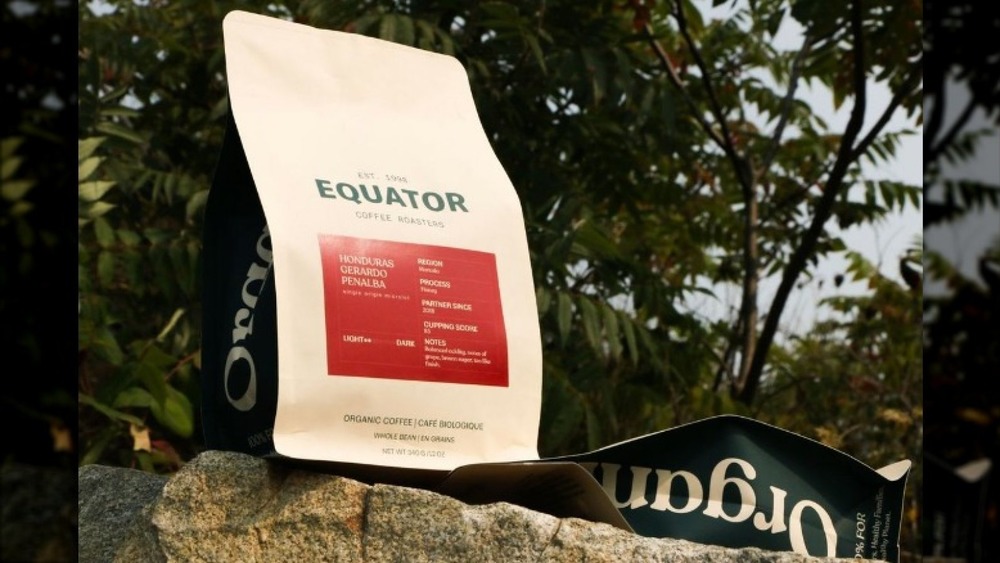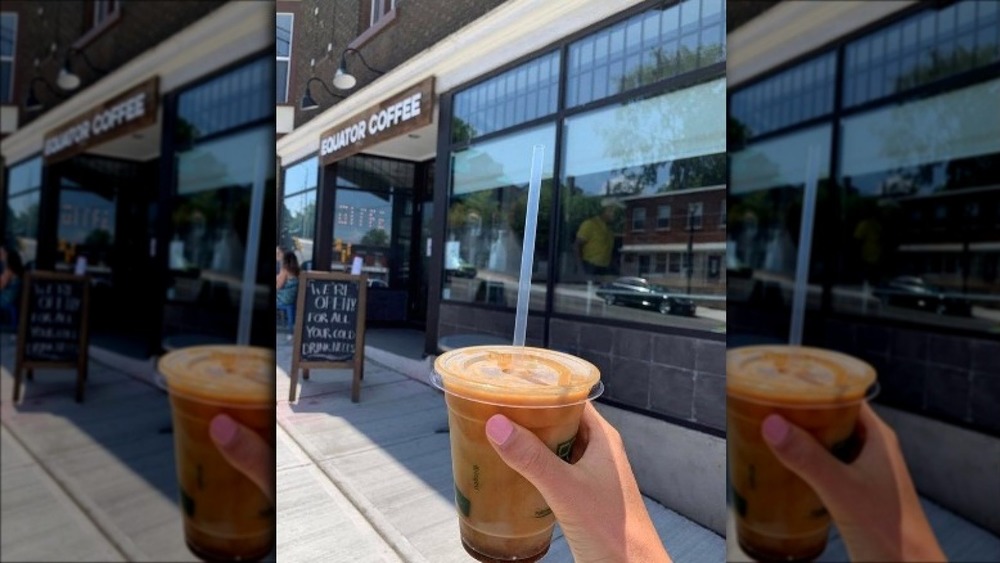The Untold Truth Of Equator Coffees
You may have tasted a cup of joe from Equator Coffees and even grabbed an espresso at one of its flagship cafes, but how much do you really know about this signature beverage company? According to Equator Coffees, the company started out in a garage in Marin County, CA when Helen Russell and Brooke McDonnell joined forces to set out on a mission to deliver the highest quality ethically-sourced coffee to consumers. By 1999, the brand became fair trade certified and started buying its beans from the Soppexcca Cooperative in Nicaragua, while 2003 saw the company purchase its signature roasting centers, and in 2008, the company founded its premiere coffee plantation in Volcan, Panama (via Equator Coffees).
As the infrastructure of the business developed, the brand set its sights on opening its first brick-and-mortar cafes. In 2013, the first Equator Coffees cafe opened in Mill Valley, and by 2019, the coffee company had opened up eight different locations where anyone can get their fix of Equator's signature roasts (via Equator Coffees). If you haven't ever encountered this brand at your local grocer, get ready — according to the North Bay Business Journal, the business has raked in the profits over the past few years, becoming a company with a net worth of $22 million as of 2019. This roasting company, which started off by marketing themselves as a "boutique roaster" may become a household name if it keeps up this rate of growth (via North Bay Business Journal).
Equator Coffees has a whole line of coffee beans, accessories, and cafes
For anyone looking to dive head first into coffee products, Equator Coffees not only provides a full range of coffee beans, but also sells all the brewing gear your heart desires. According to the brand, you can purchase a range of single origin beans that originate anywhere from El Salvador to Colombia, while stocking up on mugs, Chemex brewing systems, branded clothing, full espresso machines, and more. While this company serves as one-stop shopping for anyone looking to get into coffee, it gives back just as much.
The brand says it works with sustainable coffee farms across the globe to not only make sure it supplies ecologically-friendly products to the public, but that it also pays a fair wage for the coffee beans, preventing any exploitation of farmers it partners with. Portions of profits from certain coffee blends also get donated back to charities, such as the Sumatran Tiger Trust or World Bicycle Relief to help provide protection to the endangered tiger species or sustainable transportation options in areas with a developing infrastructure (via Equator Coffees).
For a cup of coffee that not only serves up great flavor, but helps those in need, Equator stands as a company who not only are poised to keep growing, but also provide some good to the world as it does so. Keep an eye out for this boutique brand that has positioned itself to grow into a giant in the world of coffee.

